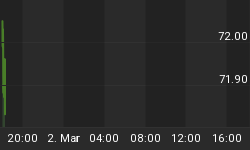Last week U.S. home prices in May were reported by S&P/Case-Shiller. The composite 20-city home price index, said to be 'a key gauge of U.S. home prices', was reported to be up 2.2% in May from April, and down 0.7% from May, 2011. This has generally been seen as good news - a possible 'green shoot' in the U.S. field of soggy economic ground as it were.
Consider broadly, beyond Case-Shiller or any other specific economic statistics, the importance of 'speed of change in economic condition' in the context of the time period for which statistics are reported. Since early May a number of important things have happened in both the Eurozone and the United States that are directionally negative since early May including (to note but a few):
-
Spain's announcements of financial difficulties faced by its banks;
-
most recently what seems to be an ever increasing likelihood Spain itself will require significant bailout fund;
-
increased concerns with respect to Italy's economic issues; and,
-
very poor U.S. job reports for both May and June, with a somewhat improved - but somewhat questionable - jobs report for July having been released last Friday.
Two - three months is a long time in a rapidly changing economic landscape. Consider what real value two-month old Case-Shiller, or any other two - three-month old economic statistic has when it is reported, and think hard about how much weight should really be given to such a statistic in the current economic environment by the governments in their planning activities, the financial markets, or anyone else for that matter.
Interestingly a second article that reports the Case-Shiller May report in a 'favourable to U.S. housing recovery way' is running a survey with its article. The single question asked is: "have home prices bottomed where you live". Votes are being recorded as I write this, but the first 2,492 respondents have replied:
-
28.7% of those have answered 'yes, prices are moving higher' (715 votes);
-
26.1% of those have answered 'yes, prices seem to be stable' (650 votes);
-
32.7% of those have answered 'no, prices are still falling' (814 votes); and
-
12.6% of those have answered 'not sure yet' (313 votes).
Presumably this is what real 'feet on the street' Americans think now, not necessarily what they may have thought three months ago. Decide for yourself what such a survey means in the context of U.S. housing recovery or further decline, if anything. Note that based on the number of respondents, this survey may or may not have statistical validity depending on how many respondents come from individual U.S. cities and regions.
Topical Reference: A Look at Case-Shiller, by Metro Area, from Real Time Economics, The Wall Street Journal, Phil Izzo, July 31, 2012 - reading time 2 minutes; and Evidence mounts that home prices hit bottom last winter, from Economy Watch NBC News, Bill Briggs, July 31, 2012 - with accompanying survey - reading time 3 minutes.















